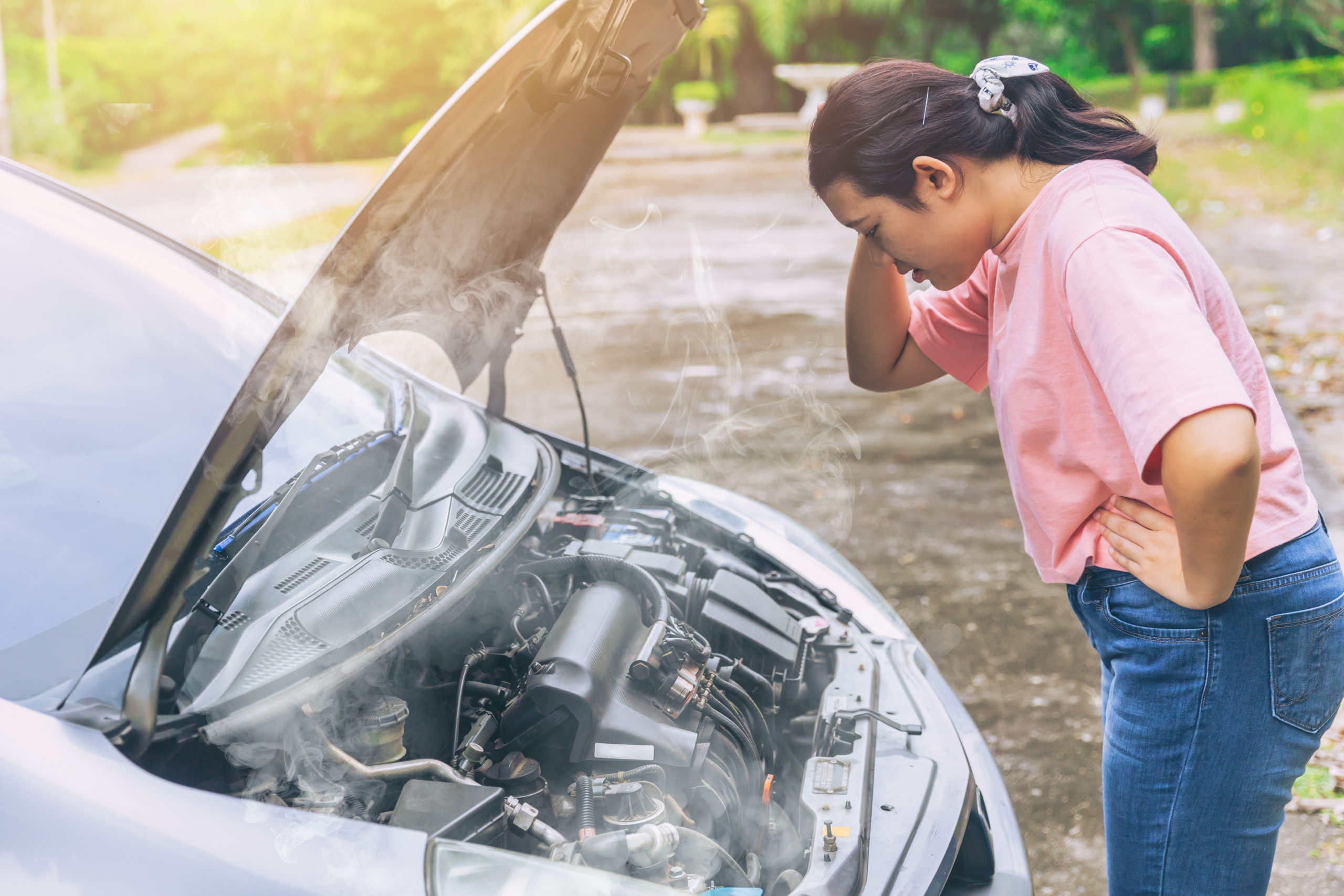Several things can cause your car to overheat. Some are relatively common problems, especially during Phoenix’s hot summers. Other issues can range from a leaking hose to a radiator problem. Newer vehicles have advanced cooling systems reinforced by computer-controlled fans and multiple heat sensors that help keep the engine running under any weather condition, but overheating can still occur.
What Causes a Car to Overheat?
Engines overheat for several reasons, usually, because something’s gone wrong within the cooling system that prevents heat from escaping the engine compartment. The cause of the problem may include a leak in the cooling system, a malfunctioning radiator fan, a clogged coolant hose, or a broken water pump.
Signs that the Engine is Overheating
Being aware of the following warning signs that your engine is overheating can prevent seriously damaging your vehicle. Here are a few:
- There’s a gauge or warning light in vehicles that indicates the engine’s temperature. If the gauge reads in the maximum area or the light flashes, they are indicators that excessive heat is being generated in the engine.
- Steam billowing out from under the hood is a common sign that the engine is overheating. The instant you notice this, pull over and turn the engine off.
- A certain amount of heat on the hood of a car that’s been running is normal. If, however, the vehicle’s hood is extremely hot to the touch, it’s a definite cause for concern.
- There is a distinct “hot” odor emitted when a car engine overheats and starts burning oil. As the temperature rises, the plastic valves, rubber seals, and resin components that help hold the engine together begin to dissolve, releasing fumes that you typically wouldn’t smell.
What to Do if Your Car Overheats
The following tips regarding what to do if your car overheats can make the difference between replacing a $30 thermostat and paying thousands of dollars in car repairs:
- Immediately turn off the A/C if you had it on, which reduces pressure on the engine. Pull over as soon as it’s safe to do so.
- Pull over, turn off the car, and let it cool off for about 15 minutes, or until the temperature gauge moves back into a normal range.
- Have the car towed to an auto care facility. If you want to chance not having your vehicle towed, once the engine has cooled, start the car, and drive it to the closest auto repair shop. Keep an eye on the temperature gauge as you drive. If it rises again, pull over and let the system cool. Waiting for at least 15 minutes allows the hood, engine, and leaking coolant to cool.
- If you have some coolant handy, add it once the engine has cooled down. Don’t rush the process because releasing the radiator cap if the engine is still hot can cause severe injuries.
What Not to Do if Your Car Overheats
If your car over heats there are a few things you should not do:
- Don’t keep driving. If your engine is overheating but still running, don’t keep driving because you could end up causing a significant amount of costly damage by pushing the engine too far.
- Don’t open the hood right away. Once you’ve pulled over, wait for the engine to cool before popping the hood. Opening the hood right away can put you at risk of burns from spewing hot steam that’s being released.
- Don’t put off an inspection. An overheating problem will not resolve itself, even by adding coolant; the problem will only get worse if you ignore it. Have the vehicle inspected by a trusted auto care shop that will be able to diagnose and fix the problem.
The best way to ensure your car doesn’t overheat is to have regular coolant flushes/replacement performed and keep up with radiator maintenance as suggested by your car’s manufacturer. Routine inspections are also helpful when addressing any potential engine or radiator issues before they get worse.
If you need help with a car overheating problem, contact us today.






